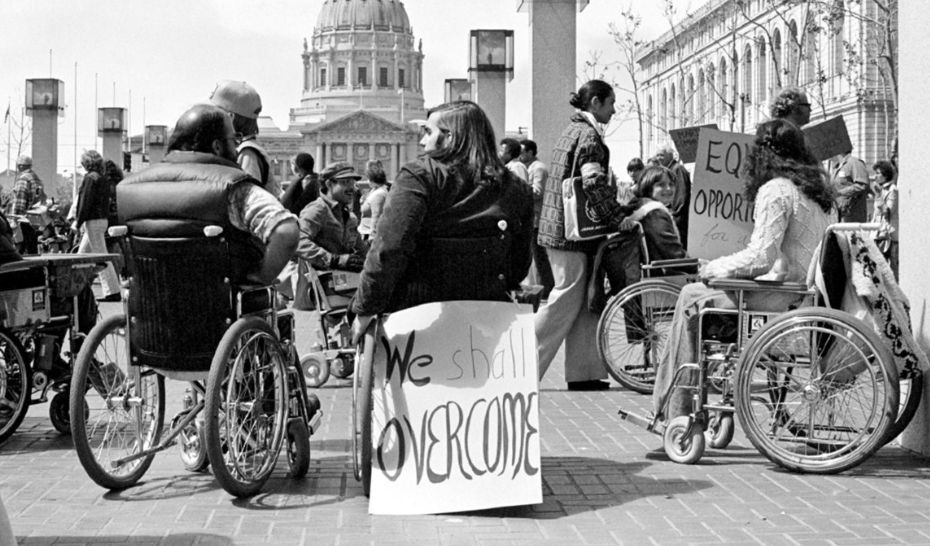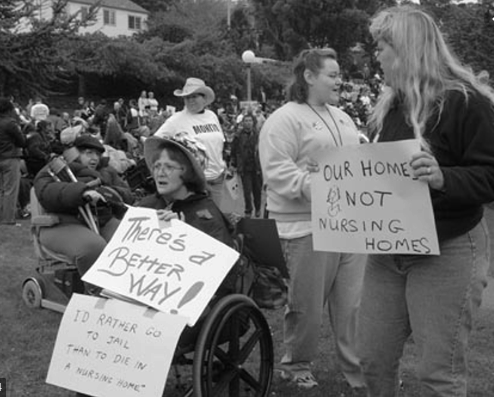The Disability Rights movement of the 1960s laid the groundwork for what would eventually become the ADA. An integral part of that movement was the Independent Living movement.
The Independent Living movement was (and remains) at the heart of a fundamental shift in the way society thinks about individuals with disabilities.
According to the National Council for Independent Living,
"The Independent Living philosophy emphasizes consumer control, the idea that people with disabilities are the best experts on their own needs, having crucial and valuable perspective to contribute and deserving of equal opportunity to decide how to live, work, and take part in their communities, particularly in reference to services that powerfully affect their day-to-day lives and access to independence."
Helmed by some of the nation's fiercest disability advocates (Judith Heumann, Lex Frieden, Peg Nosek, Ed Roberts and others), Independent Living activists engaged in some of our nation's boldest protests, including the longest occupation of a Federal building in history--a feat of dedication and bravery that ultimately led to the release of the regulations banning discrimination against people with disabilities in federally funded programs.

As the philosophy gained traction and the disability rights movement gained political influence, a passionate grassroots movement for comprehensive disability rights legislation took root and ultimately led to the passage of the ADA in 1990.
The Independent Living philosophy helped us change the way we see disability--looking beyond negative, medicalized limitations to see the whole, vibrant human beings deserving of respect, equal opportunities, and self-determination.
We would not be where we are today without the thousands of brave advocates and activists who fought for what was right and necessary. To them, we save thank you.
If you'd like to support inclusion advocacy and continue in the footsteps of the Independent Living legacy, please consider making a gift to National Inclusion Project today.
